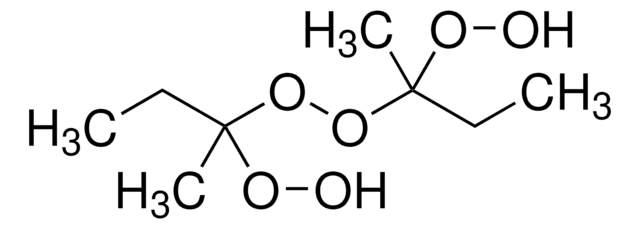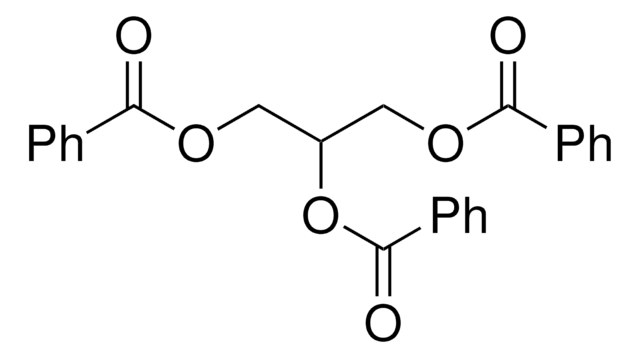513369
Luperox® Delta X-9, 2-Butanone peroxide solution
~31 wt. % in 2,2,4-trimethyl-1,3-pentanediol diisobutyrate
Synonym(s):
2-Butanone peroxide solution, Methyl ethyl ketone peroxide solution
About This Item
Recommended Products
reaction suitability
reagent type: oxidant
concentration
~31 wt. % in 2,2,4-trimethyl-1,3-pentanediol diisobutyrate
refractive index
n20/D 1.437
density
1.005 g/mL at 25 °C
storage temp.
2-8°C
SMILES string
CCC(C)(OO)OOC(C)(CC)OO
InChI
1S/C8H18O6/c1-5-7(3,11-9)13-14-8(4,6-2)12-10/h9-10H,5-6H2,1-4H3
InChI key
WFUGQJXVXHBTEM-UHFFFAOYSA-N
Looking for similar products? Visit Product Comparison Guide
Application
Legal Information
Signal Word
Danger
Hazard Statements
Precautionary Statements
Hazard Classifications
Aquatic Chronic 3 - Eye Dam. 1 - Org. Perox. D - Repr. 2 - Skin Corr. 1B
Storage Class Code
4.1A - Other explosive hazardous materials
WGK
WGK 1
Flash Point(F)
188.6 °F - closed cup
Flash Point(C)
87 °C - closed cup
Personal Protective Equipment
Choose from one of the most recent versions:
Already Own This Product?
Find documentation for the products that you have recently purchased in the Document Library.
Our team of scientists has experience in all areas of research including Life Science, Material Science, Chemical Synthesis, Chromatography, Analytical and many others.
Contact Technical Service











